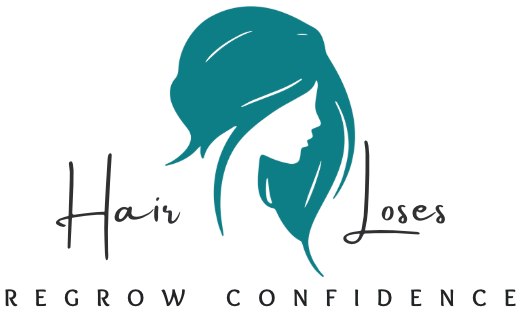Hair loss is a common problem that affects both men and women. By age 50, about 50% of men and women will experience some degree of hair loss or thinning. It can be an extremely distressing and confidence-shattering experience. Before resigning yourself to a lifetime of hats or wigs, it’s worth exploring whether natural remedies can help regrow your lost locks. In this article we talk about: Can Natural Remedies Really Help in Regrowing Hair?
What Causes Hair Loss?
Hair growth occurs in cycles. Each follicle grows a single hair for 2-6 years, then goes into a rest phase for 2-3 months before the cycle starts over. Normal hair loss is 50-100 hairs per day as part of this cycle. Hair loss can be triggered by various factors:
- Androgenetic alopecia – Hormonally-driven hair loss related to dihydrotestosterone (DHT), a byproduct of testosterone. It causes follicles to shrink and grow finer shorter hairs until they stop producing altogether.
- Childbirth – Hormonal changes and stress can cause excessive shedding about 3-6 months after delivery.
- Nutrient deficiencies – Low iron, zinc, protein, vitamins (especially Bs and D) may impair follicle health.
- Medications – Blood thinners, antidepressants, cholesterol drugs, chemotherapies.
- Autoimmune disorders – Diseases like alopecia areata cause hair to mistakenly be attacked by the immune system.
- Stress – Both physical and emotional stress can trigger telogen effluvium, a synchronized shedding of large numbers of follicles.
- Age – As we get older, follicles spend more time in the rest phase and produce thinner hair shafts.
Natural Remedies That Might Help With Hair Regrowth
Conventional treatments like minoxidil, finasteride, and hair transplants don’t work for everyone and carry certain risks. Many people turn to natural alternatives in hopes of regrowing hair without side effects. Some remedies show promise based on preliminary studies, but more research is needed. Here are some of the most popular natural solutions:
1. Essential Oils – Oils like peppermint, rosemary, lavender, and cedarwood may stimulate follicles when massaged into the scalp. They increase circulation and provide vitamins/minerals.
2. Aloe Vera – Contains enzymes, polysaccharides, and nutrients that may protect follicles and have anti-inflammatory effects.
3. Ginseng – Asian and American ginseng are believed to stimulate follicle stem cells and prevent apoptosis (programmed cell death).
4. Onion Juice – Rich in the antioxidant catalase, sulfur compounds, and quercetin. Some studies show it may help with alopecia areata.
5. Saw Palmetto – Anti-androgen properties may counteract follicle sensitivity to DHT. Useful for androgenetic alopecia.
6. Bhringraj Oil – Traditional Ayurvedic herb said to balance DHT levels, often blended with coconut or olive oil.
7. Vitamins – B-complex vitamins like biotin (B7) and niacin (B3) nourish follicles and may prevent shedding.
8. Rosemary Oil – Boosts circulation, fights inflammation and free radicals. Early research shows it’s comparable to minoxidil.
9. Coconut Oil – Lauric acid has anti-DHT effects. Caprylic acid strengthens the follicle root to prevent hair falling out easily.
10. Ginger – Stimulates circulation to the scalp and may protect follicles from DHT-related shrinkage.
11. Garlic – Contains compounds like allicin that combat hair loss inflammation and free radical damage.
12. Green Tea – Epigallocatechin gallate (EGCG) fights DHT, blocks 5-alpha reductase and stimulates hair growth.
13. Pumpkin Seed Oil – Rich in zinc, iron, vitamin A & E, fatty acids. Said to inhibit 5-alpha reductase activity.
14. Egg Mask – High protein nourishes follicles; other nutrients stimulate new growth.
15. Onion Juice – Sulfur, antioxidants, and quercetin bring nutrients to follicles and may help regrow hair.
16. Potato Juice – Packed with vitamins C, B, iron, potassium, and zinc to nourish hair follicles.
17. Apple Cider Vinegar – Removes product buildup and balances pH. The acetic acid may improve hair quality.
18. Castor Oil – Ricinoleic acid enhances circulation. Omega-6 fatty acids nourish the scalp and follicles.
19. Argan Oil – Vitamin E, fatty acids, and antioxidants may reduce inflammation and repair damage to follicles.
20. Curry Leaves – Contains antioxidants that nourish hair roots, potentially reversing miniaturization of follicles.
Maximizing Results
While many report positive effects from using natural remedies for hair growth, they can take time to make a noticeable difference. Here are some tips:
- Be patient – It can take weeks or months to detect changes as hair grows slowly (0.5 inches per month). Take progress pics.
- Combine remedies – Layering a few complementary treatments often boosts efficacy.
- Apply correctly – Part hair to access the scalp and use fingertips to massage oils/juices right onto the skin.
- Use consistently – Stick to a regular routine to maintain follicle health and continuously spur new growth.
- Manage expectations – Natural solutions aid growth but may not fully restore dense hair for those with advanced genetic hair loss.
- Address triggers – Reduce stress, improve diet, check for nutrient deficiencies, change medications if they cause shedding.
- See a doctor – Rule out autoimmune issues. Seek prescription treatments if natural methods are inadequate.
The Bottom Line
Lifestyle measures and natural remedies can support and enhance your current hair care regimen. However, those with advanced male/female pattern baldness may require medical treatment to achieve satisfactory regrowth. Speak to your dermatologist about the best options for your situation. Be patient and consistent with natural hair loss remedies to get the most benefit. I sincerely hope you find this “Can Natural Remedies Really Help in Regrowing Hair?” article helpful.
